Renting Vs Buying Home 2024 : Which is better?
Renting Vs Buying home is something that we see people comparing every now and then.
Deciding whether to rent or buy a house is one of the most significant financial decisions you’ll make. Each option has its pros and cons, and what works best for you depends on your financial situation, lifestyle, and long-term goals.
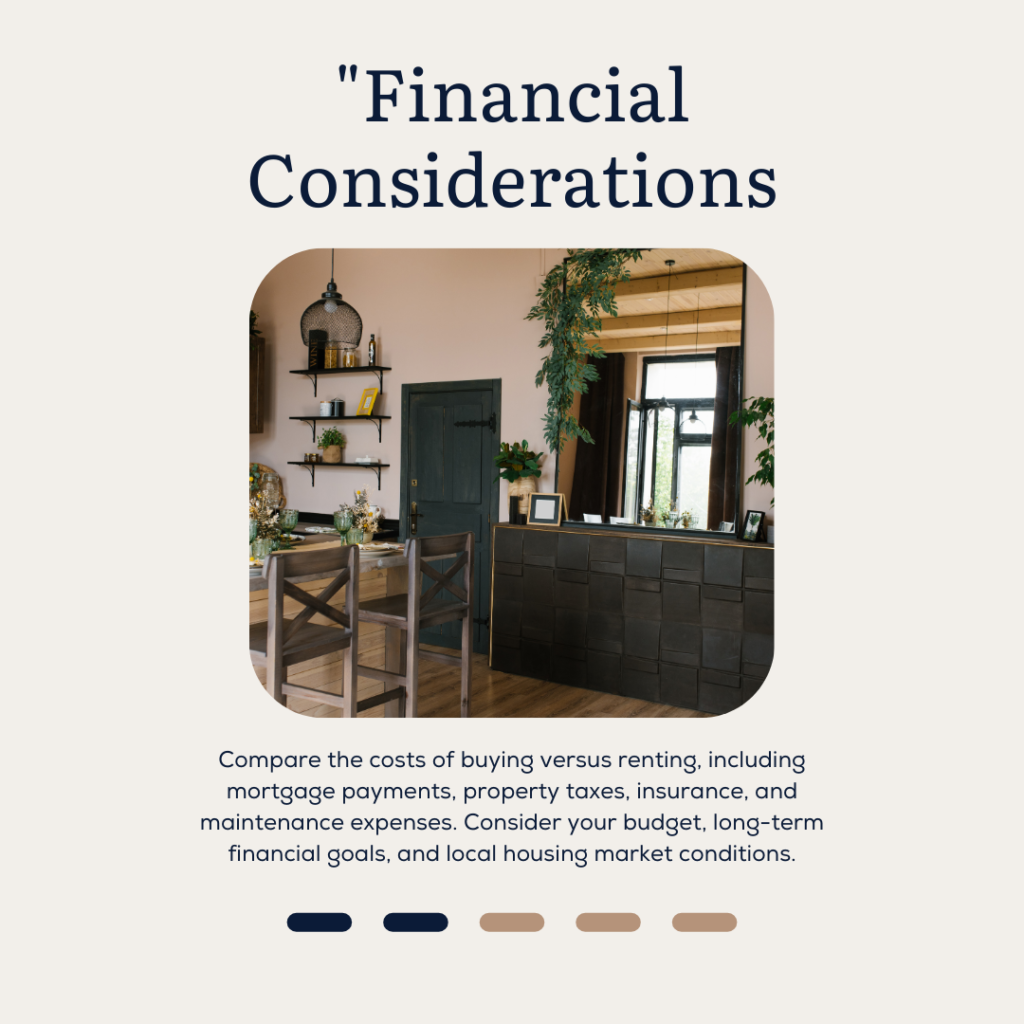
In this blog, we’ll explore the advantages and disadvantages of renting and buying a house to help you make an informed decision.
Key Takeaways: Renting Vs Buying Home?
| Criteria | Buying | Renting |
| Flexibility | Less flexibility, tied to the property | High flexibility to move |
| Upfront Costs | Higher upfront costs (down payment, closing costs) | Lower upfront costs (security deposit, first/last month’s rent) |
| Equity | Builds equity over time | No equity buildup |
| Maintenance | Homeowner responsible for maintenance | Landlord responsible for maintenance |
| Personalization | Complete freedom to personalize | Limited ability to personalize |
| Rent/Price Increases | Mortgage payments can be fixed, but property taxes may increase | Subject to rent increases |
| Amenities | Must pay for and maintain amenities separately | Often includes access to amenities (e.g., pool, gym) |
| Stability | High stability and security | Less stability (lease renewal, landlord decisions) |
| Market Risk | Subject to real estate market fluctuations | Not affected by market fluctuations |
| Mobility | Selling a home can be a lengthy process | Easy to relocate |
Renting Vs Buying Home: Market comparison
To know which is better, you first need a comprehensive understanding of Renting Vs Buying home. Hopefully, this example with some assumptions will help you clear out your doubt.
To compare the costs of buying versus renting a $500,000 house in Nova Scotia and show how buying can make more sense in the long term, we need to consider several parameters. These include:
- Upfront costs
- Monthly costs (mortgage, rent)
- Maintenance and other ongoing costs
- Equity buildup
- Appreciation in property value
- Tax benefits
Assumptions:
- Purchase Price: $500,000
- Down Payment for Buying: 5% ($25,000)
- Mortgage Interest Rate: 5% fixed for 30 years
- Property Tax: 1.2% of the home value per year
- Home Insurance: $1,200 per year
- Maintenance Costs: 1% of home value per year
- Annual Appreciation: 3%
- Rent for Similar Property: $2,000 per month with a 5% annual increase
- Investment Return on Down Payment (if renting): 5% annually
Buying a Home
“Renting Vs Buying home” which one wins? let’s see a few elements and make comparisons.
1. Upfront Costs:
- Down Payment: $25,000 (5% of $500,000)
- Closing Costs: Approx. 3% ($15,000)
- Total Upfront Costs: $40,000
2. Monthly Costs:
- Mortgage Payment:
- The mortgage amount is $475,000 (after 5% down payment).
- Monthly mortgage payment: ≈$2,548.40
- Property Tax: ≈$500 per month
- Home Insurance: $100 per month
- Maintenance Costs: ≈$417 per month
3. Total Monthly Costs: $3,565.40 per month
4. Total 10-Year Costs:
- Total Mortgage Payments Over 10 Years: =$305,808
- Property Tax: =$60,000
- Home Insurance: =$12,000
- Maintenance Costs:=$50,040
- Total Cost Over 10 Years:=$427,848
5. Equity Buildup and Appreciation:
- Principal Paid After 10 Years: Approx. $66,000
- Appreciation: ≈$671,958
- Total Equity After 10 Years: $262,958
For more information on investing in real estate, you can visit this blog on real estate market trends in 2024.
Renting a Home
1. Upfront Costs:
- Security Deposit: $2,000 (assumed as 1 month rent)
2. Monthly Costs:
- Rent for the first year: $2,000 per month (with a 5% annual increase)
3. Total Rent Payments Over 10 Years:
- Total Rent≈=$315,938
4. Investment Return on Down Payment (if renting):
- Investment Value After 10 Years: ≈$40,722
5. Total 10-Year Cost:
- Net Cost After 10 Years (Renting): $275,216
Net Cost Comparison After 10 Years
Buying:
- Total Cost: $427,848
- Total Equity: $262,958
- Net Cost: $164,890
Renting:
- Net Cost: $275,216
While renting appears cheaper upfront and in monthly costs, buying a home builds equity and benefits from property appreciation.
After 10 years, buying a house in Nova Scotia results in a net gain due to the appreciation and equity buildup, whereas renting incurs a net cost despite the investment returns on the down payment.
From these perspective, in the battle of renting vs buying home, Therefore, in the battle of renting or buying home, Buying a house makes more sense in the long term, both financially and in terms of asset growth.
Renting a House
Renting offers flexibility and lower upfront costs, making it ideal for those who may need to move frequently or who lack significant savings. However, it lacks long-term financial benefits as rent payments do not build equity
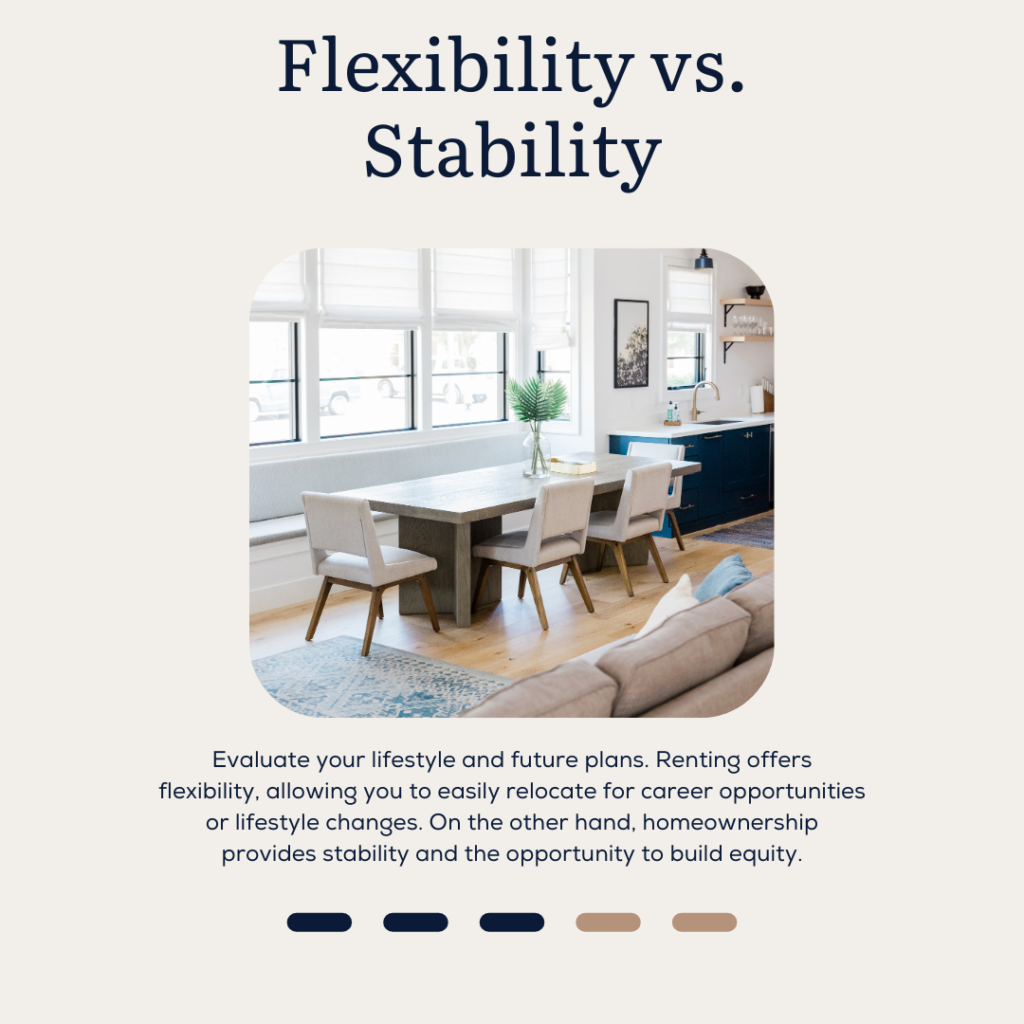
Advantages of Renting
1. Flexibility
Renting offers greater flexibility, making it ideal for people who may need to move for work, school, or personal reasons. Lease agreements typically last for one year, allowing tenants to relocate without the hassle of selling a property.
2. Lower Upfront Costs
Renting requires a security deposit and possibly the first and last month’s rent, which is significantly less than the down payment required to purchase a home. This makes renting a more accessible option for those without substantial savings.
3. No Maintenance Costs
When you rent a home, the landlord is responsible for maintenance and repairs. This means you won’t have to worry about unexpected expenses like fixing a leaky roof or replacing a broken furnace.
4. Access to Amenities
Many rental properties, especially apartments and condos, offer amenities such as swimming pools, gyms, and security services, which might be unaffordable or unavailable when owning a home.
Disadvantages of Renting
1. No Equity Buildup
Rent payments do not contribute to building equity. Over time, this can mean spending a significant amount of money without gaining any ownership stake in the property.
2. Rent Increases
Landlords can raise the rent at the end of a lease term, which can make renting increasingly expensive over time. This lack of control over housing costs can be a disadvantage for renters.
3. Limited Personalization
Renters typically have restrictions on how they can modify their living space. This means you might not be able to paint walls, renovate, or make significant changes to the property.
4. Stability Concerns
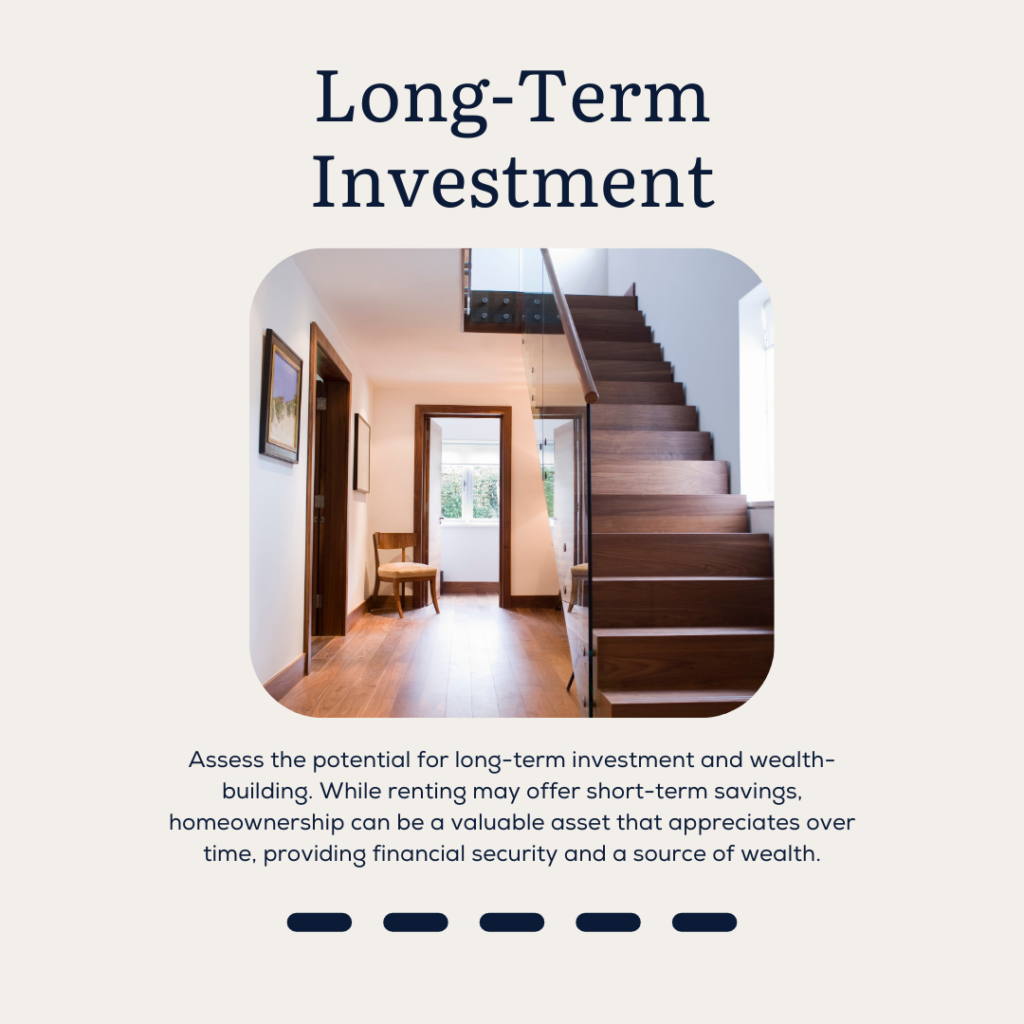
Renting can offer less stability since landlords can choose not to renew leases or sell the property, potentially forcing tenants to move unexpectedly.
Buying a House
Buying a home requires a substantial initial investment but offers stability, the potential for property appreciation, and the advantage of building equity over time. Homeownership also provides the freedom to personalize your living space.
Advantages of Buying
1. Building Equity
One of the most significant benefits of homeownership is building equity. As you pay down your mortgage, you increase your ownership stake in the property, which can be a valuable financial asset over time.
2. Stability and Security
Owning a home provides stability and security. You don’t have to worry about lease renewals or landlords selling the property. You have complete control over your living situation.
3. Potential for Appreciation
Real estate often appreciates over time, meaning the value of your home could increase. This can provide a substantial return on investment if you decide to sell in the future.
4. Personalization and Freedom
Homeownership allows you to personalize your space to your liking. You can paint, renovate, and make any changes you desire without needing permission from a landlord.
Disadvantages of Buying
1. High Upfront Costs
Buying a home requires a significant upfront investment, including a down payment, closing costs, and various fees. This can be a barrier for many people.
2. Maintenance Responsibilities
Homeowners are responsible for all maintenance and repairs, which can be costly and time-consuming. Unexpected issues like plumbing problems or roof repairs can add up.
3. Less Flexibility
Owning a home ties you to a specific location. If you need to move, selling a property can be a lengthy and complex process compared to ending a rental lease.
4. Market Risk
The real estate market can be unpredictable. While property values generally appreciate, they can also decline, potentially resulting in a loss if you need to sell during a market downturn.
Conclusion: Renting Vs Buying Home
The decision to rent or buy depends on your personal circumstances. Renting offers flexibility and lower upfront costs, making it suitable for those who prioritize mobility and short-term affordability.
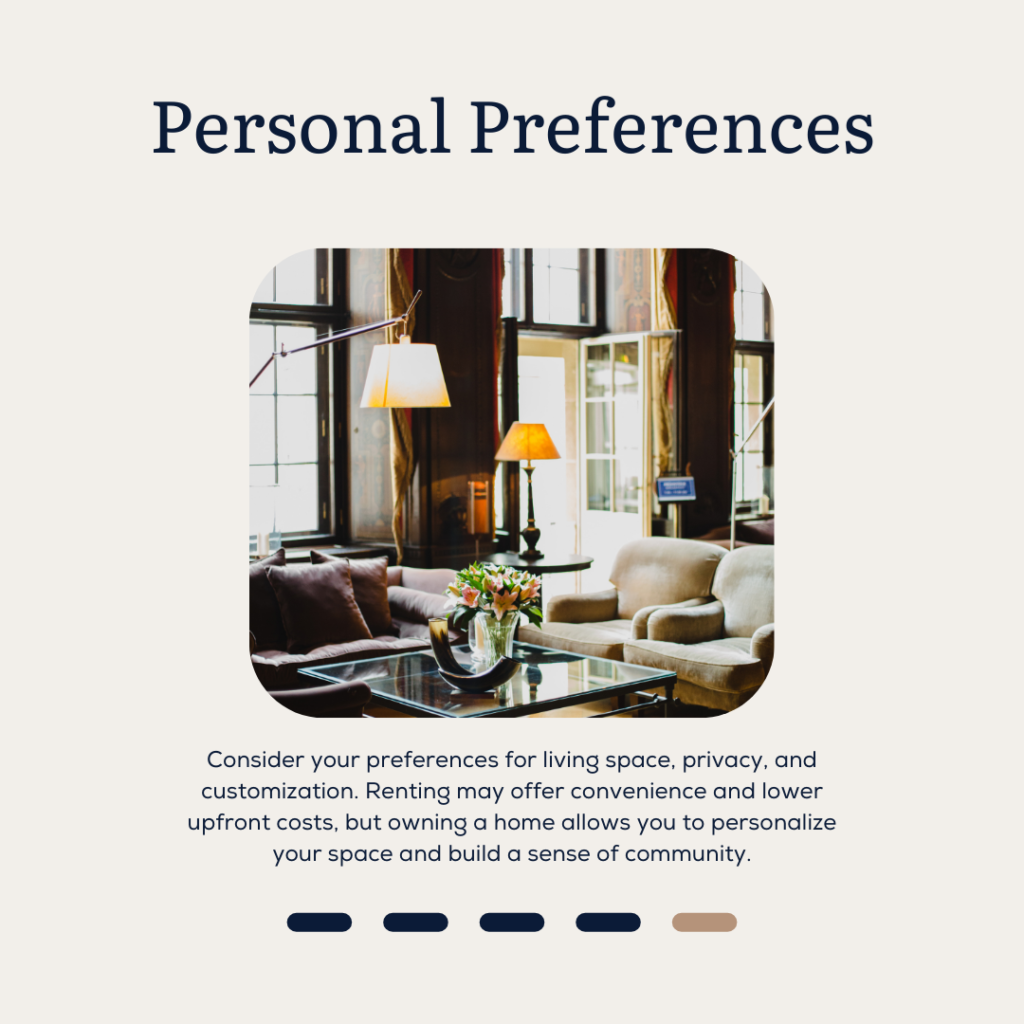
On the other hand, buying a home can be a sound investment, offering stability, potential appreciation, and the freedom to personalize your living space.
Consider your financial situation, long-term goals, and lifestyle preferences when making your decision. Consulting with a real estate professional can also provide valuable insights tailored to your unique needs. If you want to know more, look at this blog on is it worth buying a house in Nova Scotia?
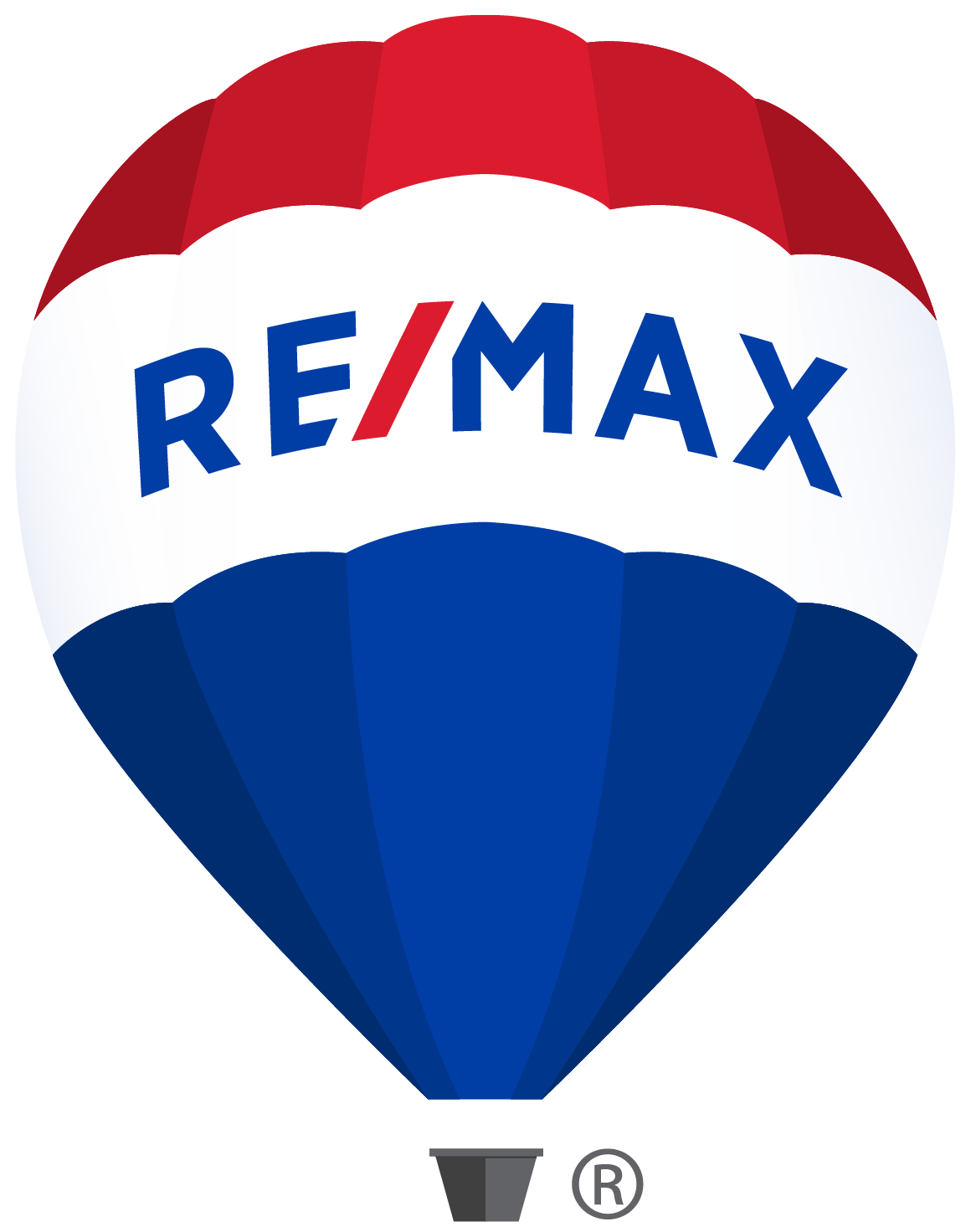
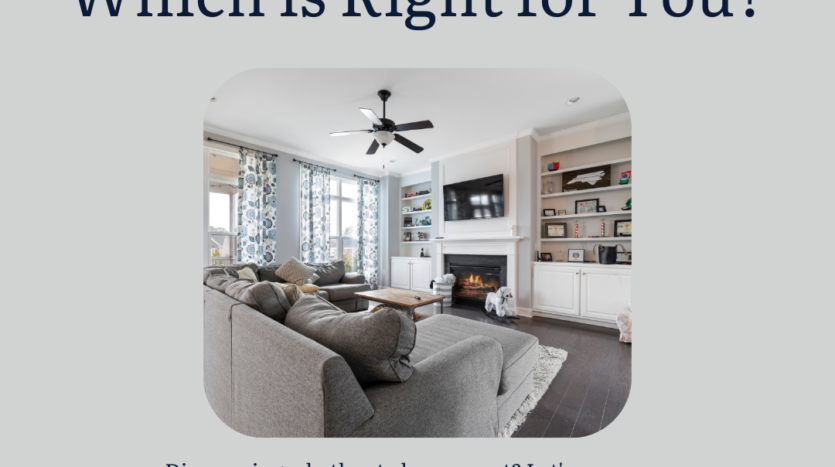







Hi everyone, it’s my first go to see at this
web page, and article is really fruitful in support of me,
keep up posting these posts.
I think that is one of the such a lot significant info for me.
And i’m happy reading your article. However wanna remark on few normal things, The web site taste is great,
the articles is actually great : D. Good activity, cheers
Wow, that’s what I was looking for, what a material! present
here at this webpage, thanks admin of this site.